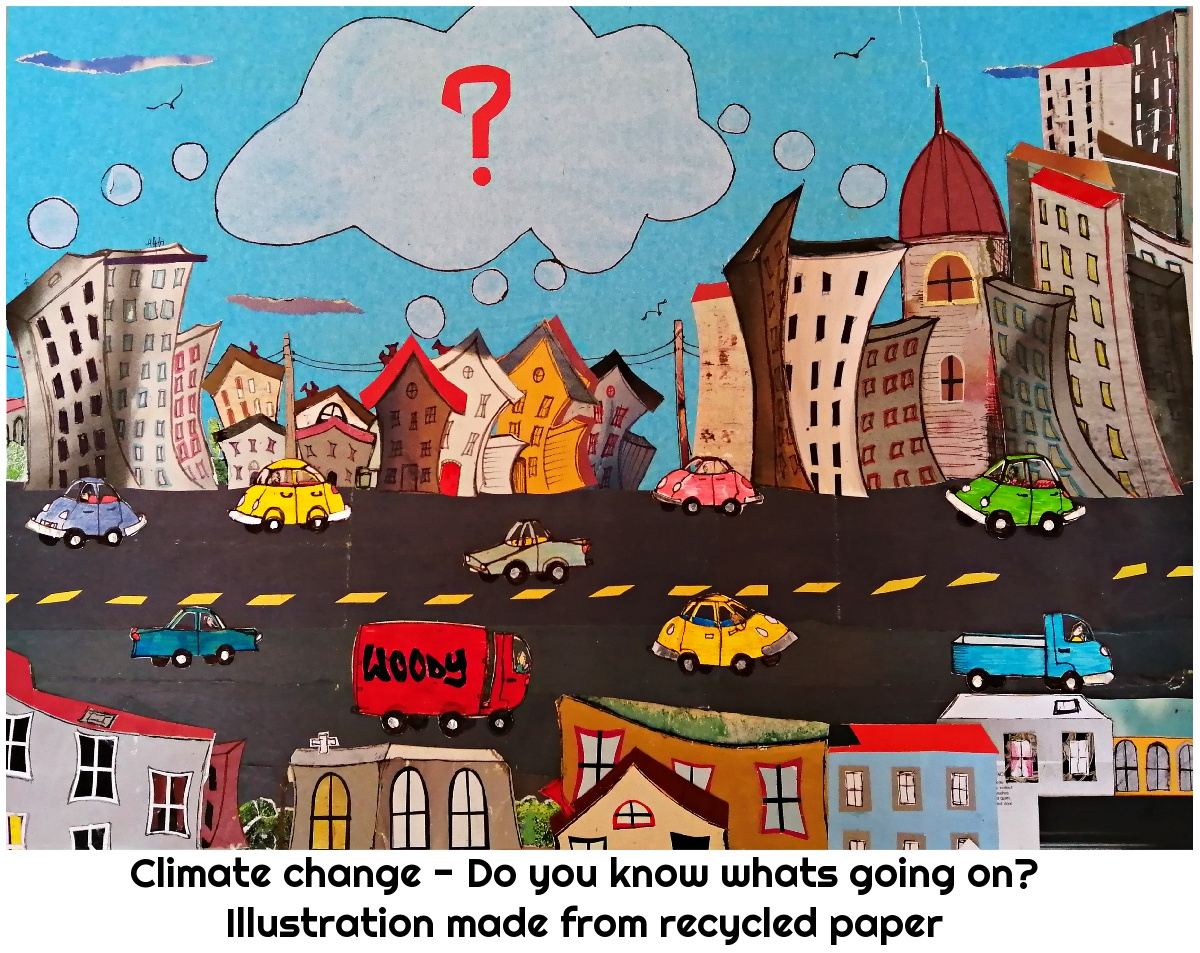Climate Change
Climate Change
The climate is changing and rapidly. It is now a ‘race’ against time to save our world but what does this mean for us (humans) and other inhabitants we share this planet with?
Planetary cycles
In a more natural world without such severe depletion of ecosystems and natural resources, there would be enough carbon sinks to absorb Co2 and greenhouse gases (GHG’s). Carbon sinks are soils, rainforests, oceans, peat lands, woodlands and all living ‘beings’ (instead of ‘things’ as that which lives, breathes, grows, reproduces has life). Carbon exists in nearly all life forms (forming proteins, DNA) and is present in the atmosphere, in the ocean, the Earth’s crust and is constantly recycled in a dynamic process known as ‘the Carbon cycle’. Essentially this is how it moves through the Atmosphere (air, gases) Lithosphere (rocks, soil, minerals), Hydrosphere (oceans and all water bodies) and Biosphere (living beings, plants, animals, us). The ‘sphere’ can be seen as the habitat or domain in which these interactions take place or inhabit. Bio-geo chemical processes are ongoing, constantly in motion, even if that ‘interaction’ takes a thousand years or more....so sometimes slow motion. Carbon sinks such as major rainforests (Amazon, SE Asian and Congo basin) are dimishing, the pressure on oceans, water bodies and other environments to absorb Co2 increases. As biomass decreases these environments are unable to absorb carbon dioxide (Co2) as before - this is a heat trapping GHG increasing in the atmosphere, leading to global temperature rise. More GHGs are being released than absorbed adding to the accumulating Co2 content (e.g. carbon locked in permafrost that will potentially be released with Polar thaw) - a tipping point scientists have identified.
Carbon
...is one of the building blocks of the universe and a major constituent of life on Earth, (a non metal) organic element having the potential to bond with other atoms to form compounds: An atom is made up of subatomic particles (protons, electrons, neutrons), a molecule is made up of two or more atoms and a compound contains two or more elements joined together (e.g. Co2, H20). Carbon is coal (60-85%), oil (80-85%), prehistoric dead plant matter which is combustible - fuel and it is this advancement through fossil fuels that has spewed GHG’s and other toxic compounds (e.g. sulfur & nitrogen dioxide, mercury, particulate matter) into the atmosphere and environment,
Human Impacts
We live on a planet that has been severely altered through human activity (>50%). The impact of unrestricted human growth can be felt in the furthest reaches even if those effects are not yet visible. Temperature changes, sea level rise, major catostophes, natural disasters are in a state of acceleration caused by planetary warming. From mining/extraction to deforestation, war, the creation of thousands of chemicals, hazardous substances, waste, pollutants each year are an onslaught on all planetary processes struggling to adjust.
Reducing our Impact
The only way to reduce climate change caused by temperature rise is to stop all burning of fossil fuels, change our behaviours, reduce our material and energy consumption to stop demand for production, change our technology and ways of thinking and existing. It is essential to protect, conserve, steward and reserve as much land and marine areas as possible to reduce biodiversity loss and educate each other to new possibilities and this is only the "tip of the iceberg". This seems like a tall order but really if we cannot, we will die out like many species before us! It's a question of starting somewhere...anywhere. Change is inevitable!
https://www.nytimes.com/article/climate-change-global-warming-faq.html
https://www.un.org/en/climatechange/what-is-climate-change
https://www.bbc.com/news/science-environment-24021772
https://earthobservatory.nasa.gov/features/CarbonCycle/page5.php
https://earth.org/half-of-earths-land-surface-remains-relatively-untouched-by-humans/

